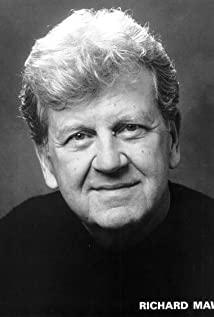Another Nobel Prize in Literature accompanies the great god
Text | Yuan Fusheng
Press: The New York Times reported that on Tuesday, May 22, 2018, American writer Philip Roth passed away. Philip Roth was a prolific, kaleidoscopic, and often darkly humorous novelist, recognized by the New York Times as one of the three greatest white male writers of the second half of the 20th century, along with Saul Bay Lou and John Updike, Ross once said: "Updike and Bellow put their torches out into the world and showed the world as it is now." "I dug a hole and put a flashlight into the hole."
Roth has received most of the other top honors: two National Book Awards, two National Book Critics Circle Awards, three Faulkner Awards, a Pulitzer Prize, and the Man Booker International.
But he failed to win the Nobel Prize. He lived a long time with Philip Roth. He was also the one who ran the longest in the Nobel Literature Prize betting list. In the future, this record was maintained by Comrade Haruki Murakami.
Twelve years ago, the curator wrote a film review "Secret is the Arthritis of Life" based on his novel "The Stain of Human Nature". Looking at it today, I can't quite understand the ravings of youth back then. I was just confused back then.
About the darkness of human nature, the novel is richer and more metaphorical, about the identity of the identity, the relationship between the individual and the public, Philip Roth's novel should be described more deeply. With the passage of time, I have gained some new understanding of "political correctness", which in general has helped our social progress, although there are occasional exceptions of accidental injury. And now with social media, personal expressions can be seen more fully by the outside world. Philip Roth's worries can be alleviated to some extent.
In today's era, the communication between people is more convenient and more frequent. It seems that everyone will have secrets that were only in the novels or movies in the past, and have experienced life fragments outside the normal track. Then, how to have and deal with the secrets of oneself and others becomes a new problem.
[attached]
"Secret is the Arthritis of Life"
Still insomnia, so I got up and watched a CD. "The Stain of Human Nature", the original author of this film is Philip Roth, who is also a popular candidate for the Nobel Prize in Literature this year. Philip Roth is known as the best contemporary writer in the United States. He has won the Poole Policy Award. In the early years, Shanghai Translation Publishing House published his "American Pastoral" and other works.
The story of "The Stain of Humanity" is actually very simple (for the content of the story, please refer to this article http://www.idigest.net/content/view/3681_89.html , http://www.xici.net/b89349/d26459873. htm )
He speaks with more detail and vividness, and I don't have the power to tell stories today.
【Story Supplement】
Coleman, professor of classics. Silk and her lover Fonia are killed in a car accident.
Corman worked at the prestigious Athena University in New England before his death, but in the spring of 1998, he called some students who skipped class "ghosts" in class, which happens to have "niggers" in American English. Meaning, so he was accused of being a racist. Under the principle of "political correctness", Koeman became a victim. Life fell apart, and almost overnight, he was left with nothing.
However, it didn't take long for his extramarital affair to be exposed again - the woman who had a relationship with him was actually Fonia, a school cleaner who was much younger than him. This made him even more distressed, and he had to seek out a friend, writer Nathan. Zuckerman's help. In fact, Zuckerman has been investigating his background and wants to use his story as the material for the novel.
After a series of catastrophic events, Koeman finally knew that it was Zuckerman who was behind everything. But Zuckerman is not satisfied with these tragedies brewed by himself, he has to give Koeman the most fatal blow: revealing the life experience he has been trying to hide.
It turned out that Koeman was an African-American who falsely claimed to be Jewish because of his lighter skin. In order to prove that he could stand in the white world, he gave up his racial beliefs, family, and even his personality in the end.
Fonia was from a wealthy background, and her parents divorced when she was a child. At the age of 14, she was raped by her stepfather and ran away from home after being humiliated. She later married and divorced Rice, a mentally disturbed Vietnam veteran. During the period, a fire took away her two lovely children, but after the divorce, Les continued to pester her. Until she met Koman, the two lonely people cherished their own secrets, filled their inner loneliness with passion and healed their wounds.
In the end, Zukoman abets the jealous Les to create a car accident that squeezes Koman and Fonia's car into a glacier on a snowy morning. Corman and Fonia's love shatters, Rice's revenge succeeds, and Zuckerman's novel based on the story is once again a bestseller.
This story sums up a life trajectory, that is, the secret is the key node of life history. I agree with one of the lines, in order to gain freedom, in order to avoid being discriminated against by others as a black man (he is a very white black man), Coleman abandoned his family and hid his background.
racial identity. Misunderstandings and criticisms among people. The helplessness of marriage. Lust in trouble. The snooping and betrayal of friends. Revenge of an old lover. Doomsday ending...
This story sums up a life trajectory, that is, the secret is the key node of life history. With secrets, there is loss of control, and the intervention of all external forces in life becomes dramatic and powerful.
I agree with one of the lines, in order to gain freedom, in order to avoid being discriminated against by others as a black man (he is a very white black man), Coleman abandoned his family and hid his background. But since then, he has fallen into a bigger predicament, which is equivalent to throwing himself into a confinement room . Therefore, he was always vigilant, sensitive and suspicious, which gave him even greater restraints and shackles.
If he disclosed his black identity early in the morning, he could not only call others a "ghost" (Spooky, which has been extended to discriminate against black students), he could even directly call people a "nigger" (Nigger!). But he couldn't. He called the sneaky and late students ghosts, and the students complained about him with "political correctness", saying that he discriminated against black people, so the topic was changed. Since then, she has had bad luck and met a lover who has a dark girlhood. Because of the secret, people of different classes can resonate and love each other. But here comes the problem.
The dilemma of identity exacerbated the dilemma of spirit, and since then, he has fallen into even greater predicament, which is equivalent to throwing himself into a confinement room. Therefore, he was always vigilant, sensitive and suspicious, which gave him even greater restraints and shackles.
The descriptions of racial issues are always so compelling. This is the core proposition of human existence in the world. This is also the third of Ross's "American Trilogy". The important work of this important writer reminds me of another well-known writer Friedman's work "The World is Flat". In that book, he talked about how, in the era of globalization 3.0, India's Asan can be completely compatible with GIs compete on one platform. I think "The Stain of Human Nature" may be showing the other side of globalization. In the United States, which claims to be the most free and democratic society, there is the same old, backward, rude prejudice and discrimination. Racial discrimination has become a cultural habit, and in this most equal country, there is such a profound ethnic inequality.
I am interested in more than the big historical issue of racism.
I'm more interested in Coleman's concealment of his ethnic origin. Universal values, other people's ideas, act on the individual, and are deeply ingrained into the process of personal values. What he resists becomes his inertia of thinking. He resents others calling him black, so he hides it. He is black, but when he is suspected of saying that others are spooky people (black ghosts), he has endured everything. This is an endless loop of "tail biter" structure, which is so depressing. In a phrase we know too well, "this is life"!
Then it comes to the core of the film - "Why do people lie?" Such as Clinton, such as Coleman. I'm not satisfied with the explanation I got from the movie. In the film, the answer is simply given to society, and society is only a factor after all. There are, of course, factors of individual will. But apart from these two is certainly not enough. I think it has something to do with how many other individuals an individual desires to identify with, such as lovers, such as friends, etc. Whether the sense of identity can be used to overcome the sense of isolation is an important question.
A lonely person, it is difficult to say that he will be a real person, he may hide more secrets and lies. Secrets or lies made to keep secrets, on the one hand, can make a person wrapped up and gain a sense of security. But on the other hand, it is also a kind of isolation, which deepens the plight of the individual and brings about the great threat that may occur. Secrets are like arthritis in life. On the surface, there is nothing out of the ordinary, but the pain in it can only be experienced by oneself, and there is basically no medicine to help the human body to treat this disease, and the mechanism is not yet clear.
Perhaps, there is also a cure for concealment and lying, which is companionship and understanding.
2006-10-16
In Changsha Sanyin Community
Rk U
View more about The Human Stain reviews











